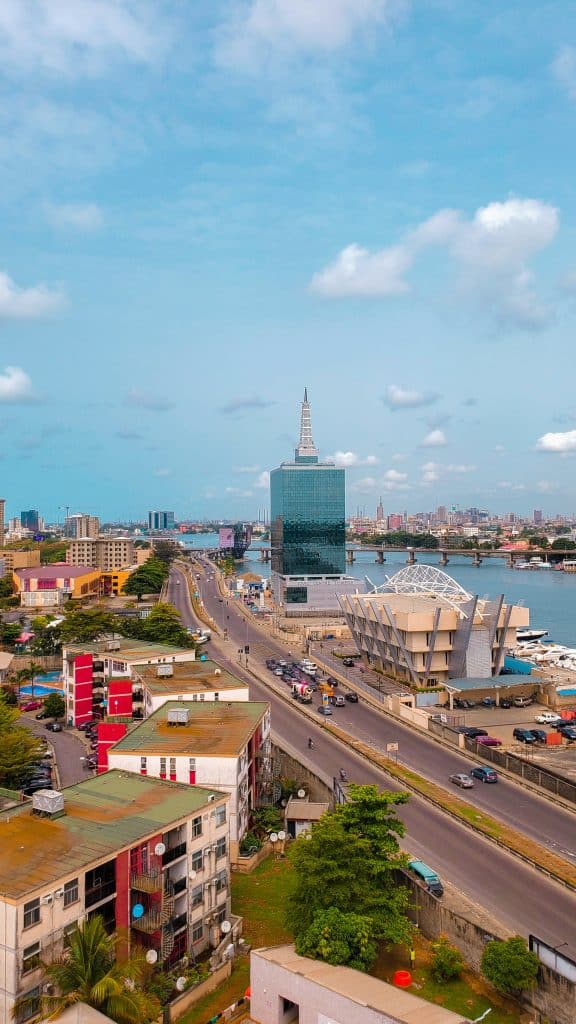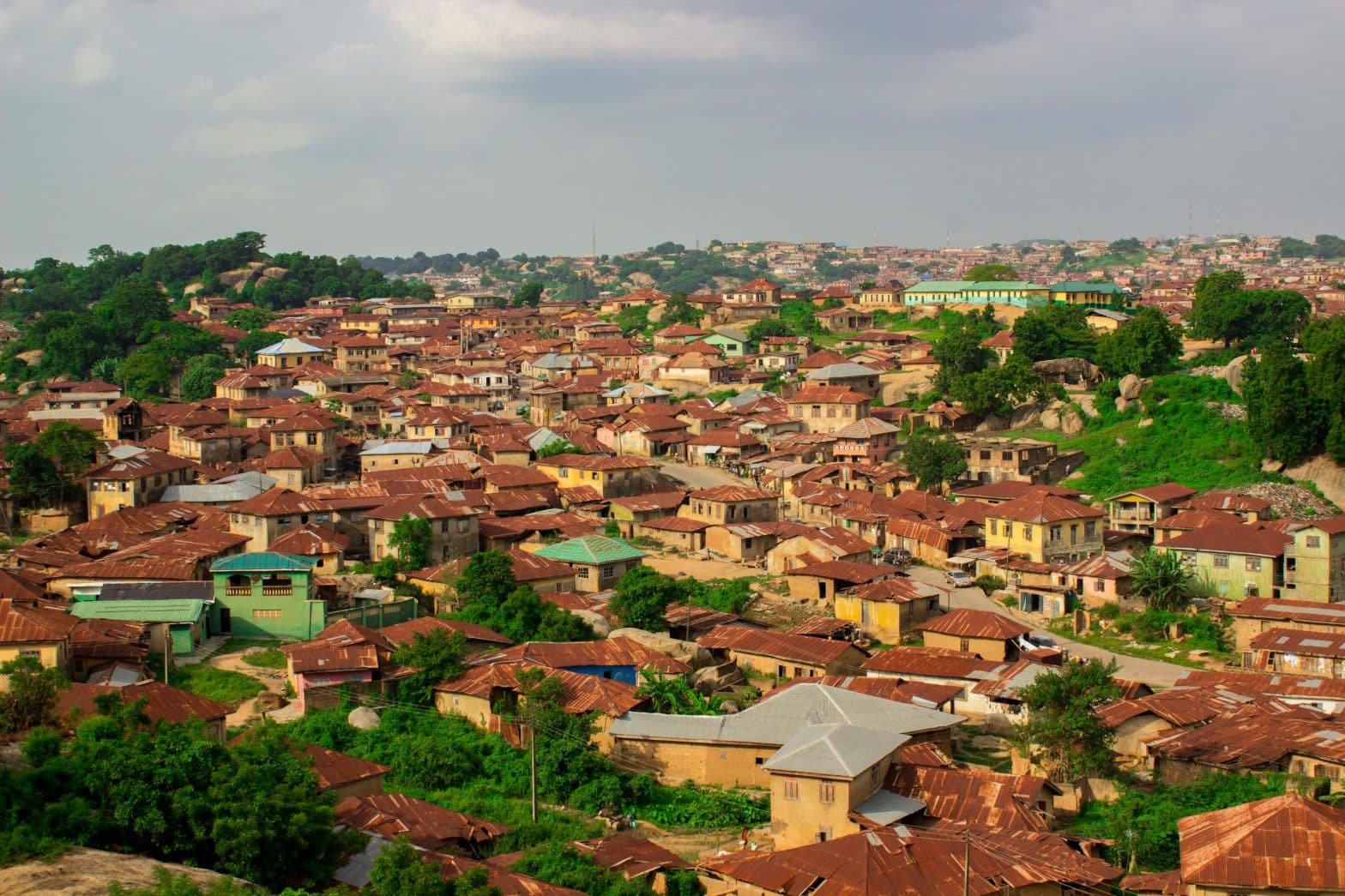Are you planning to move to Nigeria for work? Or have you fallen in love with the country during a trip and are thinking of settling there? Between the charms of Lagos and security concerns, it’s normal to have a thousand questions in your head.
Administrative procedures, cultural differences, residential areas to consider, budget requirements … Here’s everything you need to know to make your life in Nigeria a success!
Living in Nigeria: pros and cons
Pros
- The country ranks among Africa’s leading economic powers
- The official language is English
- A rich and vibrant culture
- A tropical climate with temperatures between 24 and 30°C.
- A relatively low and affordable cost of living
- A welcoming and friendly population
- An ideal country for film fans. Why? Because Nigeria has the second largest film industry in the world (‘Nollywood’)!
Cons
- A limited healthcare system, with facilities that are often lacking in modern amenities
- Inadequate infrastructure, which sometimes forces residents to invest in water tanks and electric generators
- Traffic jams that can be monstrous, especially in Lagos
- Insecurity in certain regions
Obtaining a long-stay visa to move to Nigeria
Nigeria offers more than 20 different types of temporary and permanent visas. You can find them on the official website of the Nigerian Ministry of Immigration, in the dedicated section: https://immigration.gov.ng/nigerian-visa/
Five of these are generally the most requested by foreign nationals.
Work visa: for expatriates who have an employment contract with a company based in Nigeria. This residence permit is initially valid for 90 days and is then granted for two years, renewable.
Investor visa: for foreigners who wish to set up or develop a business in the country. This permit comes in several different forms depending on the size of the business being set up (small, medium, large, etc.) and therefore the amount invested.

Highly Skilled Immigrant Visa: for expatriates with advanced skills and qualifications in sectors such as technology, health, engineering and university teaching.
ONGI visa: for foreign workers employed by international non-governmental organisations in Nigeria
Retirement visa: for retired foreign nationals who have sufficient financial resources to live independently in the country.
You must apply for your visa online at the following address: https://visa.immigration.gov.ng/ and provide several supporting documents, including a valid passport. If you have any questions, please do not hesitate to contact the Nigerian embassy or consulate in your current country of residence.
Living in Nigeria: the advantages of the city of Lagos
The number one destination for expatriates in Nigeria is undoubtedly the city of Lagos. And it must be said that it is impressive:
- With 22 million inhabitants, Lagos is one of the largest cities in the world
- It is located on the south-west coast of the country and has many beaches
- Apapa, its port, is one of the largest in Africa
- Thousands of expats choose to settle there every year
- It is a cosmopolitan megacity
- It has the liveliest nightlife in the whole country.
- Music (especially Afrobeat), art and culture are an integral part of the city.
- Not to mention that Lagos is home to some of the country’s best schools.

In short, this colourful city attracts visitors with its rich culture and numerous professional opportunities.
The cost of living in Nigeria
The cost of living in Nigeria is lower than in most European countries. By way of comparison, the cost of living in Nigeria is 43% lower than e.g. in France. However, the country has a relatively high cost of living compared to some other African countries. For example, it is 12% more expensive than living in South Africa.

An expat living alone needs an average budget of €1,150 per month. For a family expatriation, a family of four should plan for an average monthly budget of €3,200. These averages include rent, groceries, school fees, healthcare and leisure activities.
However, the monthly budget increases in large cities, especially in Lagos. The budget for one person living there is €1,350 and for a family of four, €3,960 on average.
Safety in Nigeria: is it a safe country for expats?
The issue of safety in Nigeria is a hot topic and is undoubtedly the main concern for future expats.
Living in Nigeria is generally safe for expats, provided they live in residential areas known to welcome foreign nationals. The south-west, where Lagos is located, remains one of the safest regions in the country. The neighbourhoods of Victoria Island and Ikoyi are the best places to live.
There are also some recommendations to follow:
- British nationals do not need to register with the embassy when moving abroad. However, stay Informed with Foreign Travel Advice Alerts. You can sign up for email alerts from the UK government’s Foreign Travel Advice page for Nigeria.
- Avoid travelling on foot or do so in groups.
- Never carry large sums of money on you.
- Avoid gatherings (markets, demonstrations, etc.).
Inter-community conflicts
Nigeria is a federal state made up of 36 provinces. This political system stems directly from the presence of numerous ethnic, cultural and religious diversities. Inter-community conflicts remain present, however, and cause a certain amount of insecurity in the country.
Some states are more affected than others, particularly the Plateau and Benue, which are areas that expatriates should avoid.
Terrorism in the country
As recommended by many European governments, it is strongly advised to avoid settling in the north-east of the country. Certain terrorist groups are active there, notably Boko Haram and Islamic State.
Areas to avoid include the states of Borno, Yobe, Gombe, Bauchi, Adamawa, Benue and Kano.
Getting around Nigeria
Buses are the most commonly used form of public transport in the country. Buses in cities are relatively comfortable, but comfort is sometimes basic in the famous ‘bush taxis’ that provide inter-city services.
The preferred means of transport for expatriates remains the car. However, you will need to be patient in the megacities, especially Lagos, as traffic jams are frequent, which can sometimes make getting around difficult.
You should also be careful on the roads, as traffic rules are not widely observed.

Family life after moving to Nigeria
Nigerians are known for placing great importance on family, which is reflected in the family lifestyle found throughout the country.
There are many activities for parents and children to enjoy together, such as nature excursions, spending a day at a beach in Lagos, or visiting various cultural establishments (museums, cultural centres, etc.).
When it comes to schooling, it is advisable to enrol your children in a private international school. These schools offer a high-quality education, which is usually bilingual or even trilingual.
- The Netherlands International School Lagos
- Lycée Français Louis Pasteur de Lagos
- Nigerian Tulip International Colleges of Abuja (the capital)
Work for expats in Nigeria
The Nigerian economy is driven by certain key sectors, which are also the ones that recruit the most qualified expatriates:
- The petrochemical industry
- The construction sector
- Telecommunications
- Finance
In terms of salaries, the average monthly income per capita is around 180 euros. This is a very low amount, reflecting the poverty in most parts of the country.
However, expatriates generally earn much higher salaries, as they often hold positions of responsibility within international companies, usually as part of a transfer.

The healthcare system in Nigeria
The healthcare system in Nigeria is based on the public and private sectors. However, public infrastructure suffers from a lack of funding, equipment and qualified personnel, not to mention that it is often overcrowded and waiting times can be very long.
The vast majority of expatriates choose to seek treatment in the private sector. To benefit from comprehensive, high-quality coverage, they generally opt for international private health insurance.
This offers several advantages:
- Coverage valid in Nigeria, in your home country and internationally
- Rapid access to high-quality care
- The option of repatriation in the event of a medical emergency
Some insurers, such as Foyer Global Health, also offer additional services that are highly valued by expatriates:
- A teleconsultation service
- Support from a mental health coach
- A ‘Get Fit’ programme to help you stay in shape
